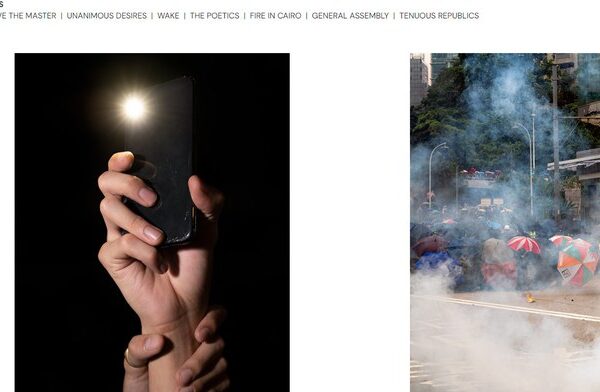
Myanmar’s post-coup economy comes crumbling down
Amid the news of escalating violence, it’s easy to lose sight of two events in August 2023 that exposed the Myanmar military regime’s vulnerability. First, in a video message to the Moscow International Security Conference, coup leader Min Aung Hlaing complained about the weaponization of the dollar. Second, the August appointment of Lt Gen Nyo Saw to two special commissions on trade and foreign exchange that report directly to junta chief Min Aung Hlaing. Saw is a close confidant, but as the chairman of military-owned conglomerate Myanma Economic Corporation (MEC) and a director of military’s other holding company, Myanma Economic Holdings Ltd (MEHL), he’s also the military’s most experienced economic and business expert. It’s hard to overstate just how bad Myanmar’s economy is. Although the World Bank predicts GDP to grow at 2 to 3% this year, the economy has contracted by 12% since January 2021. A decade’s worth of economic growth was eviscerated. Myanmar junta leader Senior Gen. Min Aung Hlaing during a military exercise in Ayeyarwady delta region, Myanmar, Feb. 2018. Credit: Lynn Bo Bo/Reuters pool Nearly 60% of the population is now living beneath the poverty line, and the World Bank is warning about food insecurity across the country. Between war, climate change, and currency controls that limited the amount of the imports of fertilizer and pesticides, agricultural production is down. Although 2022-23 saw $1.6 billion in pledged foreign investment – almost all of which was from China or boomerang Myanmar investment via Singapore and Hong Kong – far less was actually realized. Other foreign investors are pulling out, citing poor market conditions, pressure from activists, and reputational costs. This has diminished the corporate tax base. With the exception of gas and oil sales to Thailand and China, exports have been hard hit. According to the military government’s Ministry of Commerce, in the first eight months of 2022, total exports reached $6.57 billion, giving the country a $172 million trade surplus. In the same period in 2023, total exports dropped by 9.8% to $5.93 billion, with a $500 million trade deficit. But if one disaggregates border trade, it’s even worse. Currency control confusion Exports to overseas markets fell by 21%. And it will worsen as key manufacturers, such as clothing makers H&M, Primark, and Inditex,- have left. Some retailers are now shunning Myanmar gemstones. Trade has been hard hit by a series of hastily implemented currency controls that change regularly, upsetting businesses. Some of the more recent currency controls have forced any individual or business with more than $10,000, without a permit, to purchase the kyat currency at the official exchange rate of 2,100 to the U.S. dollar. The black market rate for the greenback is 3,900 kyat , a 300% decline in the value of the currency since the Feb. 1, 2021 coup. Headquarters of the military-owned Myanmar Economic Corporation in Yangon, one of the country’s main military conglomerates. Photo: Ye Aung Thu/AFP Myanmar’s banks are increasingly isolated. U.S. sanctions on Myanma Foreign Trade Bank and Myanma Investment and Commercial Bank, which were responsible for the clearing of most U.S. dollar transactions, have forced costly workarounds, such as establishing new shell companies and bank accounts. Singapore’s United Overseas Bank Limited (UOB) announced that they would close the accounts of Myanmar, and had already stopped providing banking services for Myanmar Airways International. Other Singapore banks are expected to follow suit, following signaling from the Monetary Authority of Singapore and the additional reporting requirements due to the Financial Action Task Force blacklist. A Bangladesh bank froze the accounts of the two sanctioned banks. Government revenue is flat or declining. While officially a secret, projections built into the annual Union Taxation Law paint a grim picture. The Internal Revenue Department has warned that revenue from lotteries, income tax, corporate taxes, natural resource rents, and customs duties have all stayed flat or contracted since the coup; only rents from oil and gas exports have gone up. Tax authorities are now specifically hitting medical professionals with preemptive taxes. According to data compiled by the opposition National Unity Government (NUG), the Central Bank of Myanmar has compelled banks, state-owned enterprises and insurance companies to buy an estimated 26.5 trillion kyat in bonds, $3.1 billion at the black market rate, since the coup. With an inability to repay, and an NUG pledge that the bonds will not be honored, these are additional liabilities for banks that are already saddled with non-performing loans. The regime is broke and may have turned on the printing presses. The NUG estimates that the military government has printed up to 20 trillion kyat, roughly $5.1 billion at black market rates, since the coup, partially explaining the high inflation. Sanctions take a bite In July 2023, the junta issued a K20,000 note, the highest denomination, creating an inflationary spike and a further decline in the currency’s value. It’s supposed to be a limited issue currency, but with 14% inflation, a higher denominated note may be required. While international sanctions have not resulted in a massive seizure of funds, they’ve not been insignificant either. The U.S.immediately froze $1.1 billion of Central Bank of Myanmar assets following the coup. The European Union froze $503 million when it sanctioned the Ministry of Oil and Gas Enterprise. More importantly, the sanctions have made everything harder for the junta. The NUG has identified 13 other banks around the world that are holding some $5.5 billion in Central Bank of Myanmar assets, 67% of which are in nine banks in Singapore. Should the NUG ever convince the Singapore government to freeze those assets, it would deliver the coup de grâce. A jetty for oil tankers at Madae island, Kyaukpyu, Rakhine state, Myanmar. With the exception of gas and oil exports to Thailand and China, Myanmar’s exports have been hard hit. Credit: Soe Zeya Tun/Reuters This degree of economic mismanagement is a crime in itself, right up there with the military’s daily war crimes. The economy is the regime’s Achilles heel and they don’t have…




